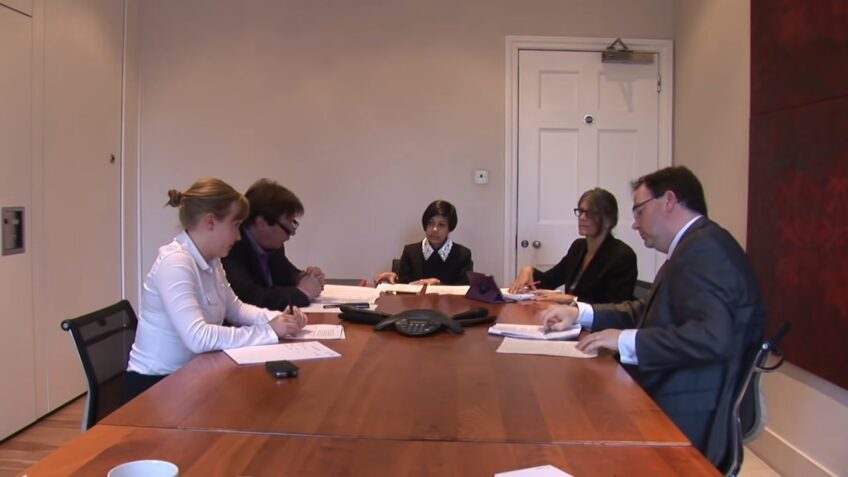Personal injury cases are synonymous with lengthy procedures, seemingly interminable waiting periods, and the ubiquitous concern—how long will it take to settle? Understanding the intricate landscape of personal injury litigation is paramount, as the multifaceted nature of these cases can often result in delays.
This blog aims to unravel the complexities, emphasizing the myriad of factors such as insurance company negotiations, medical evaluations, and legal requirements that can extend the settlement process. A nuanced comprehension of these elements is crucial in managing expectations and navigating through the often-convoluted journey of seeking justice and compensation.
The Initial Stages of a Personal Injury Case

Embarking on a personal injury case involves several critical steps. Initiating a claim and securing a proficient attorney, such as those at injured.ca, are the preliminary actions. The subsequent phases include meticulous gathering of evidence, corroborating with witnesses, and constructing a formidable case.
Medical evaluations play a pivotal role at this juncture, potentially impacting the overall timeline. The confluence of these elements lays the foundation for the legal journey, and their diligent execution is crucial for avoiding any unwarranted delays. The preliminary stages are indispensable, establishing the trajectory of the case and setting the tone for the ensuing legal endeavors.
The Role of Insurance Companies
Insurance companies are the linchpins in personal injury cases. Their response times and the extent of their investigations are substantial determinants of the case’s duration. Engaging in negotiations with insurance adjusters is often a time-consuming endeavor, requiring patience and strategic acumen.
It’s pivotal to recognize the proclivity of insurance companies to prolong the settlement process. The dance between reaching an agreement and engaging in prolonged discussions is intricate, and the ability to navigate this space effectively is crucial for obtaining a favorable outcome in a timely manner.
The Importance of Medical Treatment

Immediate medical attention post-injury is not just crucial for health; it is fundamental for strengthening the case. The ongoing medical treatment and the recovery timeline inherently impact the overall duration of the case.
Medical records and reports serve as indispensable legal documents, validating the extent and nature of the injuries. The pursuit of prompt and thorough medical treatment is instrumental in fortifying the case, emphasizing the relationship between swift medical intervention and the expedited legal process.
The Discovery Phase
The discovery phase is a paramount component of personal injury cases, involving an intricate exchange of information between the conflicting parties. This phase encompasses depositions, interrogatories, and exhaustive document requests.
It’s an arena fraught with potential delays, with disputes over information often extending timelines. The discovery phase’s pivotal nature necessitates a comprehensive understanding to navigate through potential stumbling blocks and to propel the case forward efficiently.
Mediation and Settlement Negotiations

Mediation is a significant milestone in the settlement journey, presenting an opportunity for parties to reach a consensus. The negotiation discussions that ensue are layered, involving multifaceted dialogues between the conflicting parties.
A plethora of factors can either expedite or prolong this phase, requiring a fine balance of patience, strategy, and compromise. Recognizing the inherent complexities in this stage is fundamental for fostering constructive discussions and steering the case toward a timely resolution.
The Trial Process
The journey to trial in personal injury litigation is laden with intricate steps such as jury selection and multifaceted pre-trial motions, each manifesting its own unique timeline. The trial’s ultimate duration heavily depends on the complexity inherent to the case at hand, and the advent of potential appeals could serve to extend this timeline significantly.
Recognizing the multilayered and convoluted nature of the trial process, coupled with the potential delays that could arise, is indispensable for the management of expectations and the development of a nuanced, informed perspective on the overarching duration of the case. The importance of patience and strategic planning is underscored during this phase, acting as key determinants in navigating the potential complexities that may arise.
Factors That Can Cause Delays

Embarking on a personal injury case journey, one is met with a plethora of potential delays emanating from factors like court congestion, the availability of key witnesses, and the navigation of legal complexities. Unforeseen and unprecedented circumstances, such as global pandemics, introduce additional layers of complications, necessitating a high degree of adaptability and a profound understanding of the continually evolving legal landscape.
The conscious acknowledgment and understanding of these potential impediments are pivotal, providing a foundation for developing accurate, realistic timelines and adeptly navigating through the intricate legal labyrinth with a level of informed anticipation and preparedness, enabling a more streamlined navigation through the multitude of stages in litigation.
Strategies to Expedite Your Case
To expedite the settlement process of a personal injury case requires multifarious strategies, which involve seamless cooperation with the attorney, the prompt submission of crucial documents, and maintaining clear, concise communication throughout. Further, exploring viable alternative dispute resolution methods, such as arbitration, emerges as a significant strategy, potentially facilitating a more expeditious resolution to the case.
The effective implementation of these well-crafted strategies can act as the catalyst in propelling the case forward, significantly mitigating potential delays, and ensuring the attainment of a resolution in a more streamlined and efficient manner. These strategies, when employed appropriately, could significantly alleviate the strenuous aspects of the legal journey, enhancing the overall experience.
Legal Requirements and Statutes of Limitations

Maintaining an acute awareness of the legal prerequisites and the stringent statutes of limitations in personal injury cases is of paramount importance. The consequence of missing critical legal deadlines can be detrimental, casting profound effects on the case’s duration and its overall chances of success.
Different types of personal injury cases are governed by varying statutes, thereby necessitating a comprehensive and nuanced understanding to circumvent inadvertent breaches and the ensuing severe repercussions. Adept and strategic navigation through these legal stipulations is indispensable for sustaining the momentum of the case and sidestepping unnecessary, avoidable delays, contributing to the seamless progression of the case.
Realistic Expectations for Case Duration
Establishing and maintaining realistic expectations concerning the duration of a personal injury case is fundamentally crucial for preserving patience and maintaining a balanced perspective throughout the intricate legal process.
The distinct stages of the case are characterized by their inherent timelines, and each case, marked by its unique nuances and specifics, necessitates a meticulously tailored approach. Embracing a balanced, well-informed expectation is crucial in managing the inevitable, oscillating ebbs and flows of the litigation journey, allowing for a more centered and prepared approach to the uncertainties and variabilities encountered in the multifaceted world of personal injury law.
Conclusion
Personal injury cases are complex, involving multifaceted stages each with its inherent challenges and timelines. Patience, understanding, and a comprehensive knowledge of the process are vital in navigating potential delays effectively.
Seeking proficient legal advice and maintaining open, clear communication are instrumental in managing expectations and ensuring a smoother journey through the intricate world of personal injury litigation.

